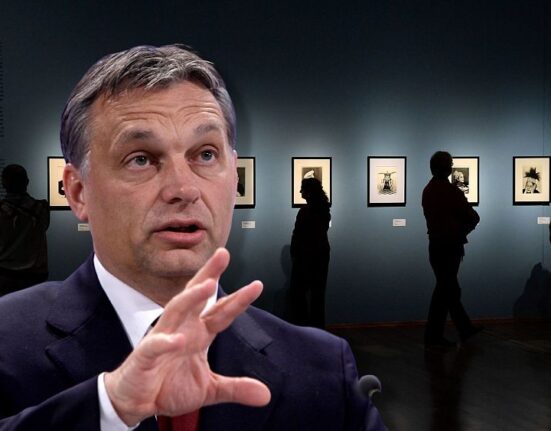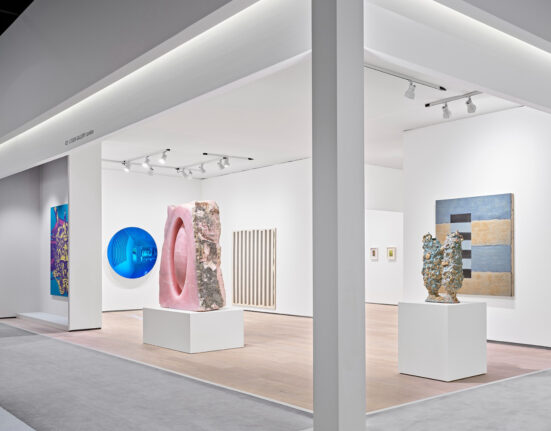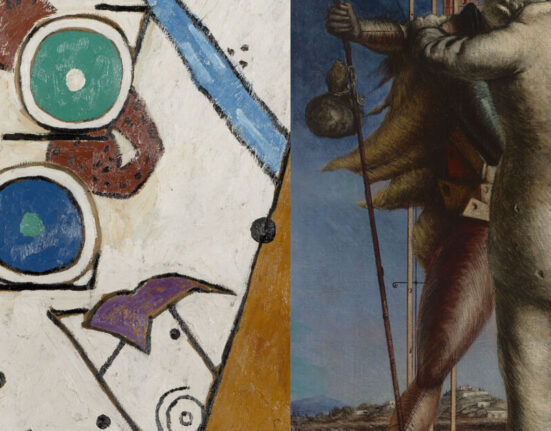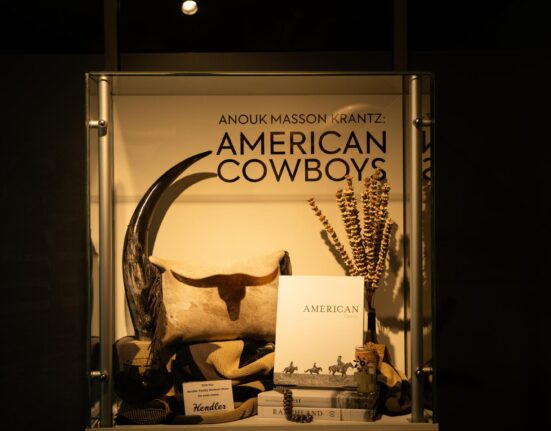Thanks to several invasions, Georgia’s capital city Tbilisi was completely destroyed and rebuilt around 30 times. Weaving together its past, present and future is an astounding fusion of architectural styles to appreciate and be inspired by.
Set between the Caucasus Mountains and the Black Sea and bordered by Turkey, Armenia, Azerbaijan and Russia, Georgia is an exceptional blend of Europe and Asia. Heart-wrenching and heroic in equal parts, the country’s tumultuous history comes alive in its architectural diversity. Think crumbling brick residences, ornate Art Nouveau mansions that double as speakeasies, ancient castles, medieval churches and wine-making monasteries standing side by side with jaw-dropping modern structures that showcase a whacky use of metal, glass and geometric patterns, and bridges and airport terminals that look like abstract art sculptures. However, what flows through it all is Georgian vernacular and energy, and the country’s effort to find a balance between preserving its rich heritage and embracing innovation.
View more
Old City Panorama.
If you’re someone who chases art, design and architecture wherever you go, Georgia’s capital city Tbilisi will bowl you over. A crossroads of civilisations and an outpost on the Silk Road, the city is exploding with vibrant history, hidden spots, and compelling stories.
Saunter The Alleyways Of The Old District
Tbilisi is a city where quintessential European elegance and romance meet modernist, big-city glamour. Begin your adventure with long walks in the maze-like, atmospheric Old Town with streets radiating from the Freedom Square.
Observe the Old City Wall ruins on Pushkin Street before making your way to Alexandre Dumas Street 17 with centuries-old dilapidated houses awaiting refurbishment. It’s tough to believe that many still have lavish interior decoration, rich tapestry, stunning stained-glass windows, metal details, and more. Don’t miss the pretty ceramic signs on some streets.
Reflecting Tbilisi’s rhythm and communal character are apartments with brightly painted, intricately carved wooden balconies, a mishmash of laundry lines, Italy-style courtyards dressed with wine trellises and flowering plants and a well as a source of fresh water. This courtyard culture dates back to Soviet times when large buildings were sectioned into smaller homes to accommodate the influx of Georgian families from rural areas.
An architectural wonder that never fails to attract attention is legendary Georgian puppeteer Rezo Gabriadze’s theatre built using material from abandoned structures. Attached to it is the quirky, playful Clock Tower, also known as the Leaning Tower of Tbilisi, decorated with a jumble of tiles. At the stroke of each hour, an angel mannequin comes out to strike the bell.
Aerial view of Akhaltsikhe Castle in Georgia.
Indulge In A Soak At One Of The Ancient Bathhouses
Tbilisi, which literally means ‘warm place’, was born due to the hot springs, and bathing in these sulphur-rich waters has been an important part of the city’s culture. Visit the historic Abanotubani, or the “bath district”, which is home to more than ten sulphur bathhouses inspired by Persian architecture and built around the 17th and 18th centuries. The mosaic-tiled, mosque-like facade of Chreli-Abano, the gorgeous domed roofs of Royal Bathhouse, and the old-world opulence of Gulo’s Thermal Spa leave you speechless. Indulge in a private soak and scrub at one of the authentic bathhouses for a closer look at the interiors boasting exquisite wall mosaics, marble pools and Roman and Arabic design elements.
Gawk At The Bizarre Modern Wonders
Among contemporary showpieces is the 150-metre-long, bow-shaped Peace Bridge sitting over Mtkvari River. Designed by Italian architect Michele De Lucchi, the striking pedestrian bridge incorporates metal and glass as a symbol of transparent and forward-looking Georgia. House of Justice which resembles mushrooms growing on the stubs and Tbilisi Music Theatre and Concert Hall consisting of conjoined glass and steel tubes are other exceptional structures.
The Gelati Monastery before sunset.
Spend Time Observing Art
Tbilisi is home to countless big and small murals by Georgian and international artists. Look for comical works by LAMB, one of the country’s most talented street artists. A hot spot among young, chatty locals and globetrotters is Fabrika – a hostel, co-working space, café, restaurants, and street art and design stores housed in a Soviet-era sewing factory. This cool community space located on number eight Egnate Ninoshvili Street still consists of some original fixtures, furniture and pictures that tell tales of its interesting past. The area outside Fabrika is loaded with funky street art that makes for excellent Gram-worthy backdrops.
Among significant museums and galleries, the Georgian Museum of Fine Arts is definitely worth your time and the ticket price. Its massive gallery spans a collection of around 3,500 works created by more than 100 Georgian artists over the last 70 years. Another city highlight is the Academy of Arts Museum, a part of the Tbilisi State Academy of Arts that has some of the country’s top creative minds among its alumni. The mesmerising beauty of its Qajar-style Mirror Halls will stay with you for a long time.
Look For Eclectic Keepsakes At The Flea Market
If you love collecting antiques and handmade souvenirs, allot a morning to the Dry Bridge Market situated in Dedaena Park. The open-air flea market is a treasure trove for everything from Soviet passports, currency and pins, to fridge magnets, jewellery, crockery, paintings and ceramics by local artists, handmade carpets and electrical equipment. It is open from 10:00 am to 5:00 pm every day and is a fantastic place to photograph Georgian wares and vendors, interact with friendly local, or simply spend time people-watching while being serenaded by a musician.
Abanotubani district with wooden carved balconies in the Old Town of Tbilisi.
Meet The Mother Of Georgia
Wind up the Tbilisi itinerary with a cable car ride from Rike Park to Narikala Fortress, an impressive historical specimen from the 4th century. While you’re here, take in the bird’s eye views of the city from the nearby café; the panoramas beautifully sum up Tbilisi’s architectural marvels. Walk a few steps from the fortress to arrive at Sololaki Hill and get up close with the Mother of Georgia or Kartlis Deda, an imposing, monolithic aluminium figure of a woman in Georgian national dress designed by Georgian sculptor Elguja Amashukeli. She is seen holding a bowl of wine in her left hand to greet her well-wishers, and in her right hand is a sword to help her tackle her foes.
Insider Travel Tips:
- Georgia has a swift e-visa policy which helps you acquire a visa within five working days. If you have a valid US or Schengen visa, you do not require a visa to visit Georgia.
- Many residential houses in the Old District of Tbilisi have been converted into B&Bs. For a memorable stay experience, put up in one of the buildings with a common courtyard brimming with life. Alternatively, spend a few nights at the Radisson Blu Iveria Hotel in Tbilisi City Centre. The hotel is situated on the architecturally rich Rustaveli Avenue and offers rooms that come with stunning views of the Mktvari (Kura) river and the surrounding landscape as well as Mtatsminda, the city’s historic hill. What’s more? The hotel is situated at walking distance from the Old Town and the Narikala Fortress.
https://www.radissonhotels.com/en-us/hotels/radisson-blu-tbilisi - Looking for a budget flight option? Jazeera Airways offers regular connections to Tbilisi (via Kuwait) from the major cities in India.
https://www.jazeeraairways.com/en-kw







